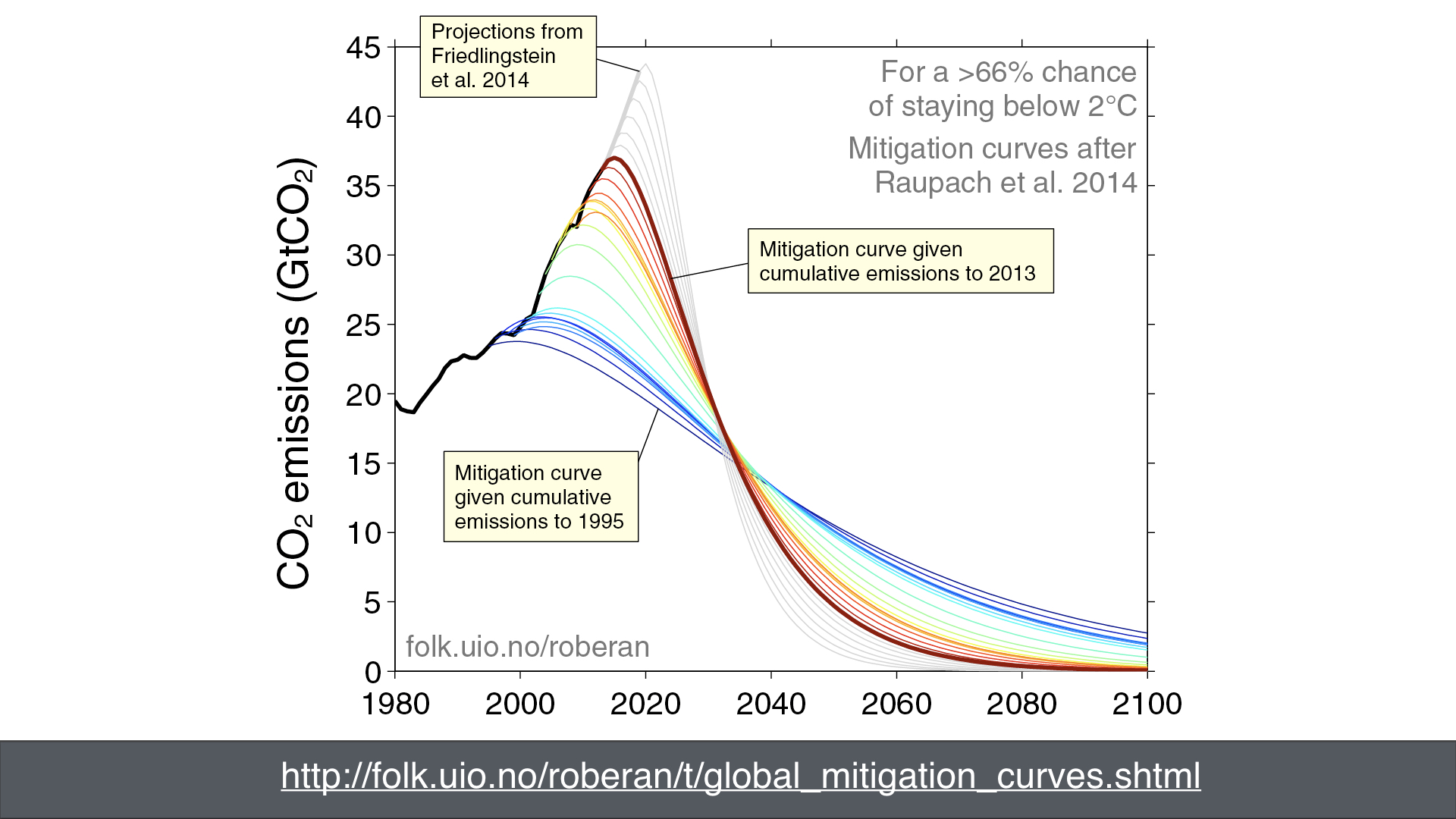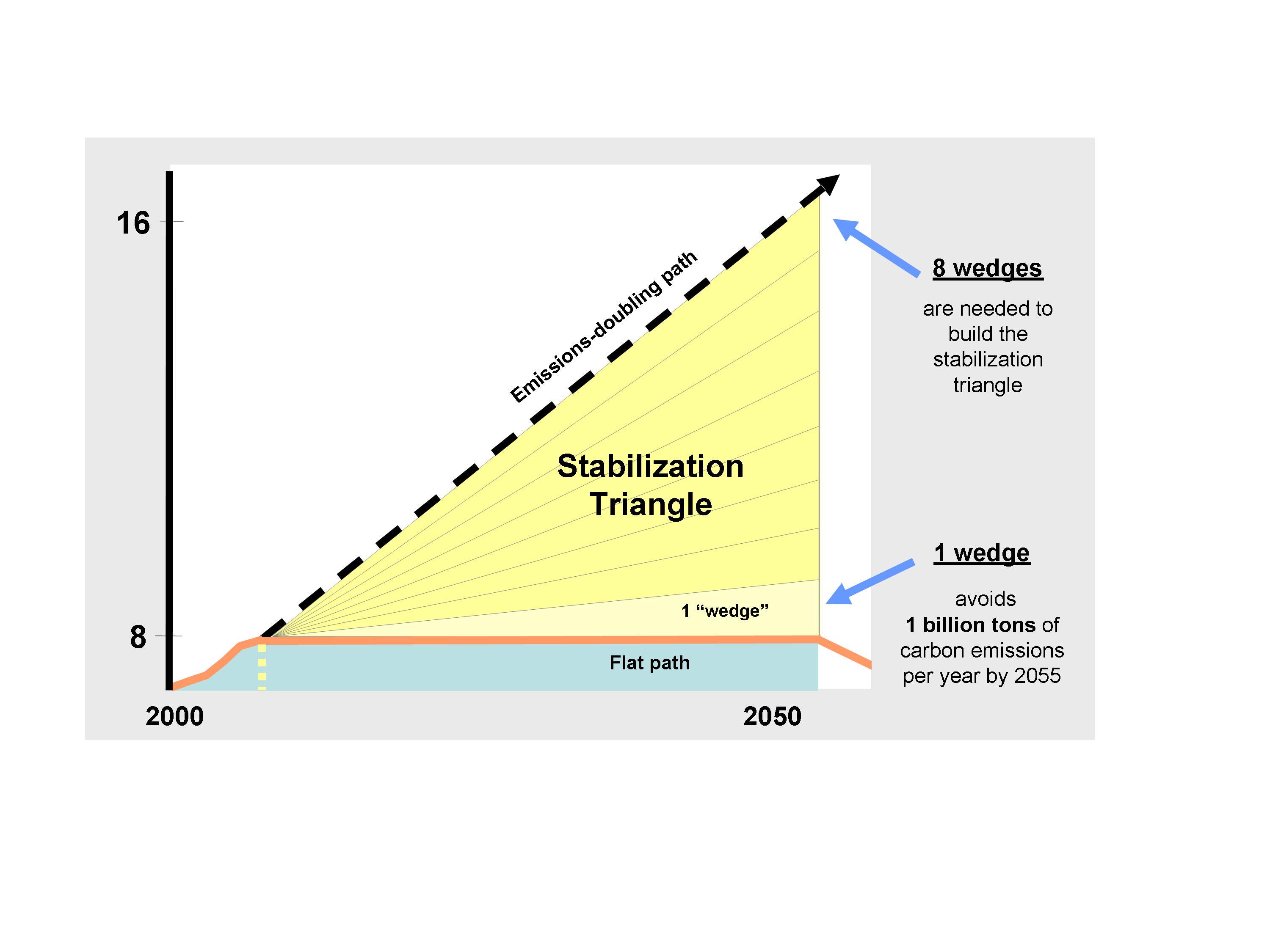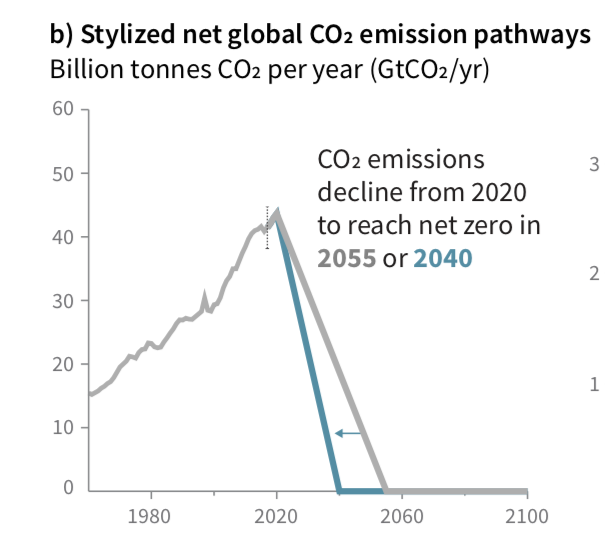Looking for playtesters for "Beyond Climate Wedges" a educational game about climate change policy
(Update - we're running this on Wednesday 6.30, on 14th Nov at Factory Mitte, as it's reasonably central, and getting a room didn't cost anything. Please get in touch if you'd like to come along)
It's easy to find the sheer scale of the changes ahead of us daunting if we want to avoid the most catastrophic effects of climate change, and when we see scary graphs like this showing how quickly we need to decarbonise - and these are just for 2 degrees, not 1.5.

One communications tool that's been used to help people get their head around just what's needed, and how much we can achieve with technology avaialable today is the Climate Stablisation Wedges Game from Harvard, made in 2007.
It's called the "Climate Wedges" or "Harvard Wedge" game, because the goal is to, in groups, put together a portfolio of different technologies and interventions (the wedges) that when combined allow us to go from ever increasing emissions, to a more stable flat amount of CO2 being emitted - combining the wedges adds up to meaningful reductions.
It's easier to see it graphically, like below:
This game has been used in schools, university and business seminars to help with conversation about climate change, and one of the reasons it's been successful is it's simplicity - you choose from a collection of wedges in your group, based on your different priorities, then you explain you decisions to the other groups. The wedges act as a prop to help you talk about what's needed, and also see what we have at our disposal right now.
It's also pleasingly tactile, and relatively easy to teach.

Going to zero, not just stabilisation
The thing is though, the stakes are higher now. This was the rough goal of the original Wedges game back in the mid 2000's:

This is a recent figure from the most IPCC report on staying in 1.5 degrees C of warming. We're not talking about stablisation any more - we're talking about an aggressive, re-tool the-planet-like-our-lives-depended-on-it reduction now:

What does this even look like?
Later in November, Alper Cugun and myself are running a workshop at the upcoming conference, Bits und Baüme, to play test a variant of the Climate Wedges game, that tries to address these questions, based on more up to date science.
We plan to use information from sources like the IPCC Pathways to Zero scenarios, and also more contemporary literature like the interventions outlined in Drawdown.
Trying this out together
We're looking for playtesters who are free one evening after work in the first week in November, and while we havea venue if we have more than 10 people coming, we'll need a larger venue, so we're actively looking for a venue to play test this at.
Who is we?
Me and Alper are organising this. I'm a user researcher and technical consultant with an interest in climate change, and Alper is a game designer as well as being a dab hand at programming.
We want to run to test the workshop format before the conference, ideally in first week in November.
If this sounds interesting, please get in touch with me - my contact page shows the best ways to reach me.
The full blurb for the conference
Below is the blurb we used, and you can see the session in the conference programme for Bits Under Baüme.
Tickets for the conference in Berlin are available here.
The Stabilisation Wedges game is an educational game used in classrooms, universities and business seminars since 2007, to aid discussion about what kind of measures are available now with existing technology, to stop the growth of annual global CO2 emissions each year.
Players work in teams to put together a portfolio of different policy decisions, and different technologies, which when combined to form a ‘wedge’ to stabilise the year on year growth in emissions, so emissions stay level each year.
However, in 2015, at the COP21 conference, almost every country on Earth agreed to a resolution to limit global warming to two degrees celsius. To make this possible, we now need to reduce emissions to zero by 2100, with most of these reductions delivered by 2050.
In this session, we'll be testing a prototype of a ‘Beyond Wedges’, an educational game based on the 'wedges' approach., where players work in teams to create a similar portfolio of measures, but updated with information from IPCC scenarios and publications like the recently published sources like Drawdown (http://drawdown.com/).
The aim of the game to act as a discussion tool, to better understand what getting zero carbon emissions would look like.
The aim of this workshop is to gain feedback about the prototype - how ‘playable’ it is, how well it helps players have an informed discussion about the changes ahead of us, and where possible incorporate the latest science from specialists with domain expertise - there may be ‘wedges‘ available that we haven’t considered which are worth incorporating into future versions of the game.
This feedback will go into refining the game, which we intend make freely available under similar terms as the original climate wedges game (essentially free to use in educational contexts), and to help with building an online version of the game.